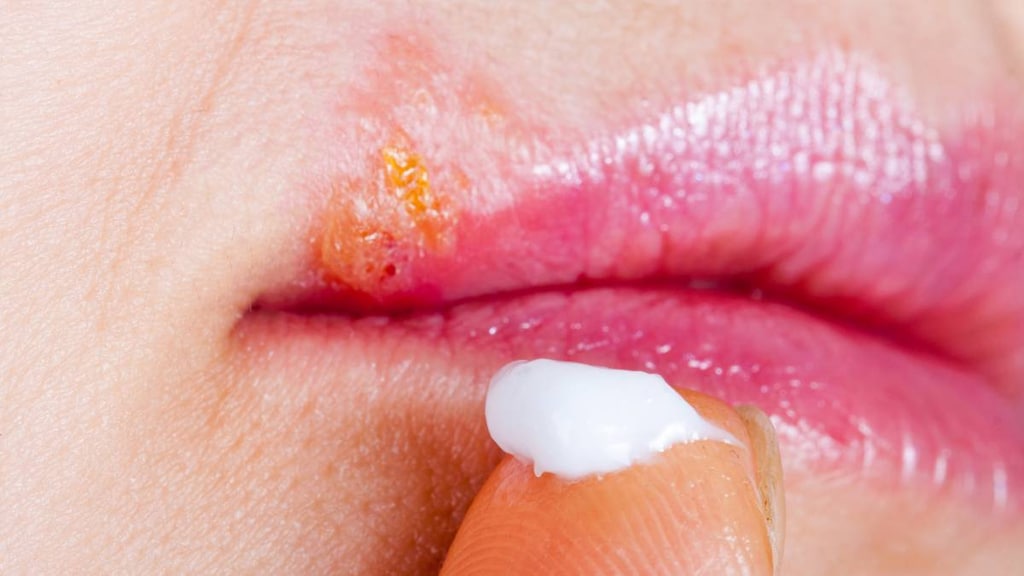
What is herpes simplex labialis (cold sores)?
Herpes simplex labialis (cold sores) is a common type of viral infection that mostly affects the lips.
It is usually caused by herpes simplex virus type 1 (HSV-1), although infections with herpes simplex virus type 2 (HSV-2) are becoming more common. Herpes simplex labialis is also known as cold sores or fever sores.
What causes herpes simplex labialis?
Herpes simplex labialis is caused by the herpes simplex virus which is usually spread through kissing or by sharing objects such as toothbrushes or eating utensils.
In people who already have the virus, it can be reactivated by the following conditions:
- Dental work to the mouth
- Immunosuppression
- General illness
- Menstruation
- Stress
- Sunlight
- Surgery
- Trauma to the affected area
The virus can be transferred to people who have not already been infected by the virus and to those with weakened immune systems (such as from HIV or chemotherapy). Herpes simplex labialis infections can also cause genital herpes through oral sex.
What are the symptoms of herpes simplex labialis?
Symptoms of herpes labialis usually include:
- Tingling in an area on or near the lips or the bottom edge of the nose followed a day or two later by the appearance of a fluid-filled blister
- This blister pops to form a cluster of fluid-filled pockets
- Sometimes a sore throat, fever, or swollen lymph nodes in the neck also occur
Symptoms usually resolve by themselves within 10 days.
The primary infection with the HSV-1 virus usually occurs before the age of 20 years. Symptoms of the initial infection in children may include inflammation of the roof of the mouth, inner cheeks and gums, which swell and bleed easily. Other symptoms may include a high fever, excessive dribbling, and whitish-yellowish ulcers in the mouth or on the tongue. However, sometimes the initial infection may manifest as genital herpes if transmission occurs during orogenital contact.
Even though a herpes simplex infection resolves, the virus doesn’t leave the body. Instead, it recedes back up the sensory nerve into the root of the nerve (usually the trigeminal ganglion) where it lies dormant for a person’s lifetime. Reactivation can occur on exposure to certain stimuli, and the virus travels back down the nerve, and once again causes cold sore symptoms.
How is herpes simplex labialis treated?
Herpes Simplex Labialis will resolve by itself within about 10 days; however, many people seek treatment to try and speed up the recovery process.
Treatments are more effective if started early (the first sign of a tingle on the lips) and may include:
- Antiviral creams
- Topical anesthetics
- Topical zinc
- Oral antiviral tablets (will decrease the incidence of relapses)
- Lysine
Treatment does not cure the person of the virus but may reduce the number of outbreaks.




